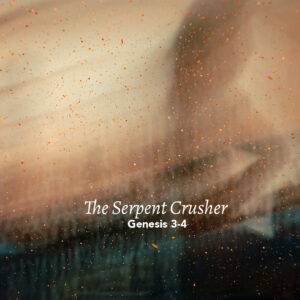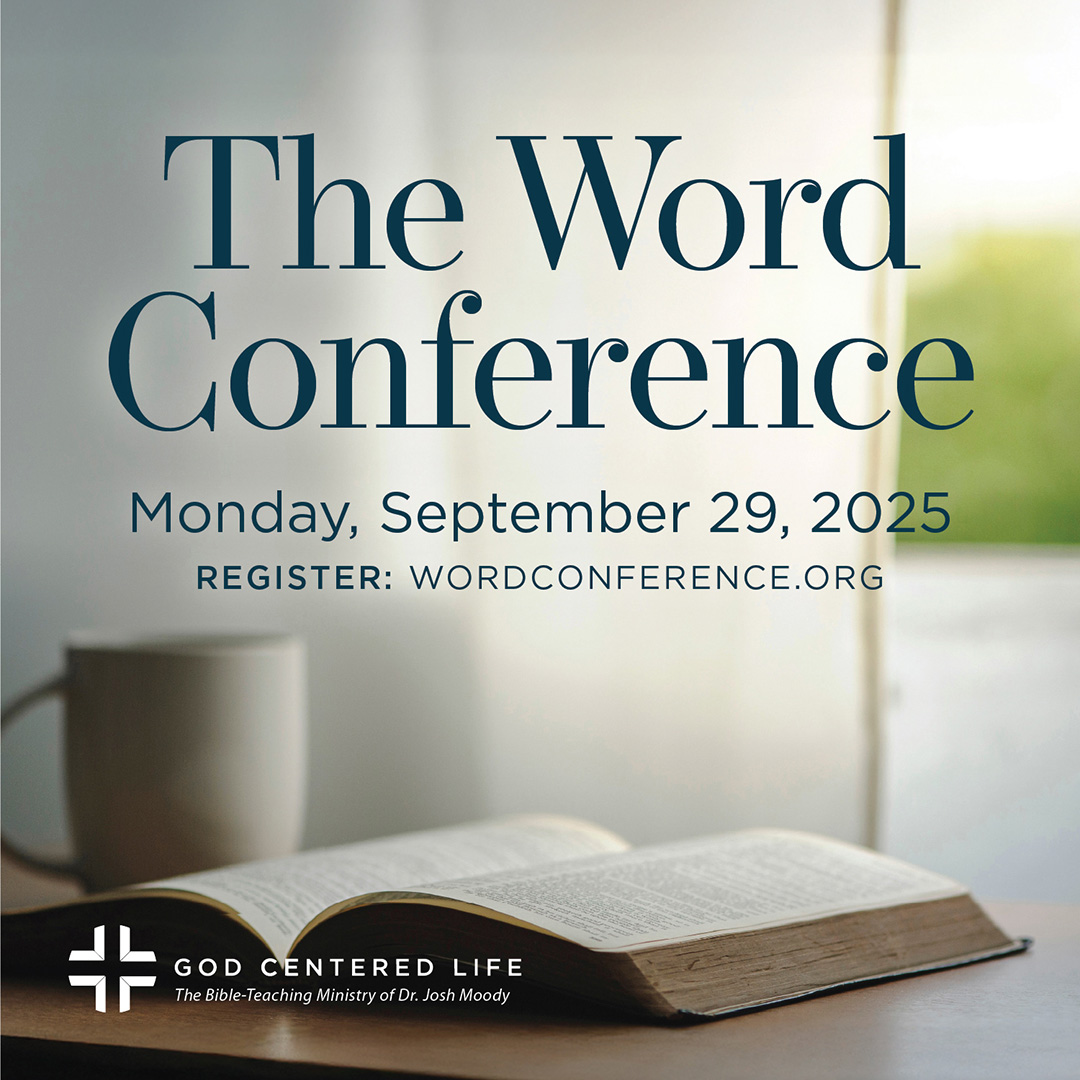Genesis 3-4: The Serpent Crusher
January 2, 2024
TODAY'S BIBLE READING:
Genesis 3-4; Psalm 2; Matthew 1:18-25; Acts 1:12-26

We now enter two of the most famous (perhaps we should say “infamous”) and saddest chapters in the Bible. Reading them is not going to give you a feel-good pick-me-up at the beginning of the year, at least not in any superficial sense. We read about how Sin (we might say capital “S,” for we interpret Genesis 3 through the lens given us by the Apostle Paul in Romans 5:12-21) entered the world through the rebellion of Adam, and then we read about its most practical, disastrous, and literally murderous results.
Having said that, while these chapters are hardly likely to make a bestseller list from a positive way of thinking, they are at the same time, though, extraordinarily hope-filled and jam-packed with grace, mercy, and the unfolding of God’s salvation, his historical plan of redemption. You really cannot understand the rest of the Bible without understanding these two chapters (especially chapter 3), for they present to us the question for which the rest of the Bible is the answer.
The story of Genesis 3 is familiar to many of us, though it has far too often been caricatured to give attention to its subtleties. Where did the sin begin? Was it the eating of the fruit from the tree of the knowledge of good and evil? Or was it before that with the original entertaining of the temptation? We are not given great insight by the author into the inner workings of Eve’s or Adam’s minds, apart from the soliloquy-like moment when she sees that the fruit is good to eat and pleasing to the eye (3:6). There, sin has begun to enter in, for she has desired as good that which God has commanded is not good for her (3:2-3).
Eve’s mistake, as has long ago been pointed out, was answering Satan, who was in the form of a serpent, at all. She engaged in dialogue with the tempter when she would have been better doing as Joseph did when faced with a different temptation of Potiphar’s wife offering him her bed—he simply fled (Gen. 39:11-12). But Eve did not; she replied. And in replying, she betrayed her misunderstanding of God’s command. She did not fully or accurately quote his prescription (Gen. 2:16-17), and added to it the telling addition “and you must not touch it” (3:3), showing that her inner disposition towards God’s law was becoming crypto-legalistic, starting to make God’s law more strict than it really was.
Satan provides her with truth, but cunningly twisted (3:4-5): she will become “like God,” as God himself declares (3:22), but in the worst possible way. She at this moment was claiming that she was not just “made in the image of God” (1:26-27), but that in a sense God was made in her image, that she was in control, and that she had the right to set the rules and determine what was good and what was evil. In that sense she did become godlike, however ridiculously, uselessly, and pathetically—like a clown playing Hamlet, or like a fish trying to fly by jumping out of an airplane, birdlike for a moment, yes—but not in any real sense, only in the clasping after that which was not hers.
Whence the hope? The “little gospel” (as Martin Luther famously called it), the protoevangelium: the serpent will bruise the heel of her seed, and he shall crush the serpent’s head (3:15). Ever after, throughout the whole of the Bible, the one ringing story, the question, the seeking, is “Who is the serpent crusher?”
In fact, some think that when Eve gave birth to Cain, she thought that the serpent crusher had arrived—this is the man, the seed, that had been promised. She is exultant: the promise of God already fulfilled in her bearing a child, and this child would be the redeemer! But it was not to be, grossly not at all. Her hoped for redeemer was a murderer. It would take much longer for the seed born of woman to crush the serpent’s head.
In the famous story of Cain’s murder of Abel (Genesis 4), many different interpretations have been given for what it was that Cain did wrong with his sacrifice. From time to time, some have even suggested that here is an early recording of the agricultural development of ancient man! But the New Testament has it right. What Cain had wrong was his attitude, his heart. He was not acting out of “faith” (Hebrews 11:4). Cain was not “doing what was right” (4:7) because now, on the other side of the Garden of Eden, sacrifice was necessary to enter God’s presence, and faith in the sacrifice, and Cain’s self-righteous attempts to please God could never be enough. He needed to trust God, and then he would be right before God.
Cain’s jealousy rears its ugly head: sin, in highly evocative fashion, is described as crouching at his door (4:7). It is like a predatory animal, and it must be fought. This side of the Garden of Eden, outside the garden, this is the experience of us all. “Be killing sin,” as one famous Puritan put it, “or sin will be killing you.”
Cain gave in to his rage and was judged as a result—the “mark of Cain” (4:15), not specified for us, presumably being some gracious protective characteristic that warned off other Cain-like predators. And he builds a city (4:17), and settles down into a direction that is moving East of Eden (4:16), away from God, though the memory of who God is and what he requires is still very fresh on his mind.
And so darkness has come. But there is hope. A serpent crusher is coming. The most skillful narrator of Genesis remarks at the end of Genesis 4 that people are now beginning to call on the name of the Lord (4:26). True worship is being established by grace, through faith, in eager anticipation of that one day when God will redeem his people forever.
ABOUT THE AUTHOR
Josh Moody (Ph.D., University of Cambridge) is the senior pastor of College Church in Wheaton, IL., president and founder of God Centered Life Ministries, and author of several books including How the Bible Can Change Your Life and John 1-12 For You.
WANT MORE?
To receive God Centered Life devotionals directly in your inbox, as well as other resources, enter your email address in the form at the bottom of this page and click "subscribe."


